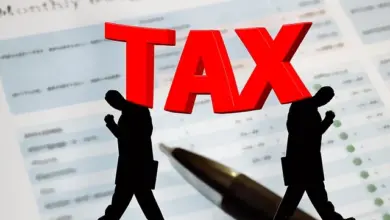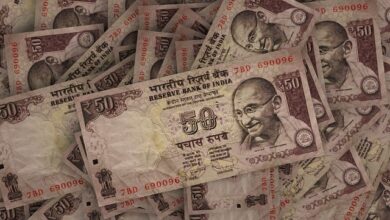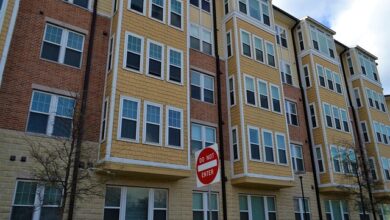How Expensive is Daily Life in the Netherlands?

The Netherlands is known for its high quality of life, excellent infrastructure, and vibrant cities like Amsterdam, Rotterdam, and Utrecht. However, this comes with a cost. While the country offers many advantages, daily expenses can be relatively high compared to other European nations. Understanding the cost of living is crucial if you’re planning to move, study, or work in the Netherlands. Let’s break down the key aspects of daily life to assess how affordable—or expensive—the Dutch lifestyle truly is.
1. Housing Costs
Housing is one of the most significant expenses in the Netherlands, particularly in major cities.
Renting
- Amsterdam: The most expensive city, with average rents ranging from €1,500 to €2,500 per month for a one-bedroom apartment in the city center.
- Rotterdam/Utrecht: Rents are slightly lower, averaging €1,200–€2,000 for a similar apartment.
- Smaller Cities/Towns: Outside major urban areas, rent drops significantly. A one-bedroom apartment might cost €800–€1,200 per month.
Buying Property
- The average price per square meter in Amsterdam is around €6,000–€8,000, while in smaller cities, it ranges from €3,000–€5,000.
- Rural areas offer much more affordable options, especially in provinces like Drenthe or Groningen.
Utilities
Monthly utility bills (electricity, heating, water, garbage) typically range from €150 to €250 for a standard apartment.
2. Groceries and Dining Out
Food costs in the Netherlands are moderate compared to other Western European countries, but dining out can add up quickly.
Groceries
- A liter of milk: €1.20
- A loaf of bread: €1.50
- A dozen eggs: €2.50
- Weekly grocery bill for one person: €40–€60
- Monthly grocery bill for a family of four: €200–€300
Dining Out
- A meal at an inexpensive restaurant: €12–€18
- A three-course dinner for two at a mid-range restaurant: €50–€80
- A cappuccino: €3–€4
- A beer at a bar: €4–€6
3. Transportation
The Netherlands has an efficient public transportation system, but owning a car can be costly.
Public Transit
- Single ride ticket: €2–€4
- Monthly pass: €80–€120 (varies by city)
- Cycling: The Netherlands is bike-friendly, and purchasing a second-hand bike costs €100–€300.
Driving
- Gasoline: €1.80–€2.20 per liter
- Car insurance: €1,000–€1,500 annually
- Tolls: There are no general road tolls, but parking fees in cities can be steep.
4. Healthcare Costs
The Dutch healthcare system is mandatory and highly regarded, but it does come with associated costs.
- Health Insurance: Basic health insurance starts at €120–€150 per month, with additional costs for extras like dental care.
- Mandatory Excess (Eigen Risico ): Each year, individuals pay the first €385 of medical expenses before insurance kicks in.
- Prescriptions: Subsidized by the government, so costs are generally low.
For expats, access to this system is a major advantage, as healthcare costs are far lower than in countries like the United States.
5. Education Costs
Education in the Netherlands is accessible and affordable, particularly for EU/EEA students.
- Public Schools: Free for children aged 4–18, including expat families legally residing in the Netherlands.
- Higher Education: Tuition fees vary:
- EU/EEA students: €2,000–€4,000 per year for bachelor’s programs.
- Non-EU/EEA students: €8,000–€20,000 per year, depending on the program.
- Private Schools: Fees range from €5,000 to €20,000 annually.
6. Leisure and Entertainment
The Netherlands offers plenty of opportunities for leisure, catering to diverse interests.
Cultural Activities
- Museum entry fees: €10–€20 (free entry for visitors under 18).
- Cinema tickets: €10–€15.
Sports and Fitness
- Gym memberships: €30–€60 per month.
- Sports clubs: €100–€200 annually for amateur participation.
Nightlife
- A pint of beer in a bar: €4–€6.
- Cocktails: €8–€12.
7. Childcare and Family Expenses
Childcare costs can be a significant burden for families.
- Daycare: €1,000–€1,500 per month (subsidized based on income).
- After-School Care: €200–€400 per month.
- Family Benefits: The Dutch government provides child benefits (kinderbijslag ) of around €250 per child per month.
8. Taxes
Taxes in the Netherlands are relatively high compared to some countries, but they fund excellent public services.
- Income Tax: Progressive rates range from 36.93% to 49.50%, depending on income.
- Social Security Contributions: Employees contribute approximately 27.65% of their salary, shared between employer and employee.
- Property Taxes: Annual property taxes are modest compared to countries like the U.S., averaging €500–€1,500.
9. Regional Variations
Costs vary significantly across the country:
| Expense | Amsterdam | Rotterdam | Smaller Towns |
|---|---|---|---|
| Rent (1-Bedroom) | €1,500–€2,500 | €1,200–€2,000 | €800–€1,200 |
| Groceries (Monthly) | €200–€300 | €180–€280 | €150–€250 |
| Public Transport | €80–€120 | €70–€110 | €60–€100 |
10. Tips for Reducing Costs
If you’re concerned about affordability, here are some practical tips:
- Live Outside Major Cities: Opt for smaller towns or rural areas to save on rent and daily expenses.
- Use Public Transport: Avoid owning a car unless absolutely necessary.
- Shop Smart: Take advantage of discount supermarkets like Aldi, Lidl, or Action.
- Cook at Home: Eating out frequently can quickly add up; cooking meals at home is more economical.
- Explore Free Activities: Enjoy the Netherlands’ natural beauty by cycling, hiking, or visiting free museums on designated days.
11. Comparison to Other Countries
To assess affordability, let’s compare the Netherlands to other popular destinations:
| Expense | Netherlands | Germany | United Kingdom | United States |
|---|---|---|---|---|
| Rent (1-Bedroom) | €1,200–€2,500 | €800–€1,500 | £900–£1,800 | $1,200–$2,500 |
| Groceries (Monthly) | €200–€300 | €250–€350 | £200–£300 | $300–$400 |
| Healthcare | Moderate (state-funded) | Moderate | High (NHS/private) | Very High |
| Public Transport | Affordable | Affordable | Expensive | Expensive |


